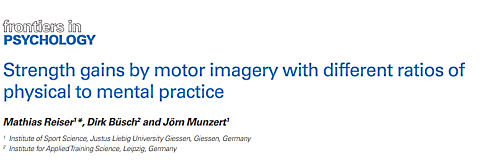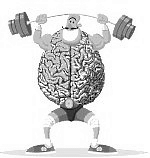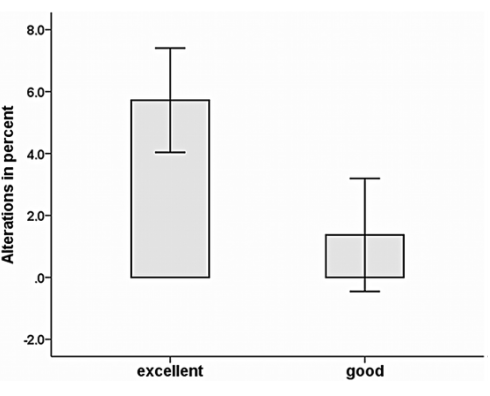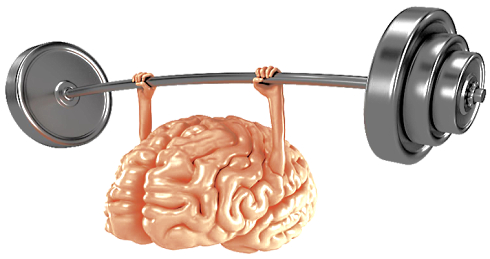|
Definition: "An ergogenic aid is any substance or phenomenon that enhances performance "
|
|
||||||||
08.04.2012 |
|
|
Imaginary training can replace the real thing
Strength athletes who replace some of their workouts with sessions in which they imagine training with weights achieve almost the same progression as athletes who don't miss any training sessions. Sports scientist Mathias Reiser of Justus Liebig University Giessen came to this conclusion after doing a trial with 43 healthy students. Imaginary training is a good option for athletes with a lively imagination.
Imaginary training
This was proved in a famous study done by sports scientist Vinoth Ranganathan. [Neuropsychologia. 2004;42(7):944-56.] Without even moving your biceps, for example, you can strengthen them just by thinking of curls.
Researchers in the Netherlands discovered that it was possible to strengthen the calf muscle of subjects using this method, and that people with serious injuries recovered more quickly.
Scientists at the University of Lyon discovered that imaginary training is also interesting for healthy athletes: according to their study, strength athletes get more out of their training if they imagine they're training in between sets.
The mind has more influence on musculature than you'd expect. You can train a muscle more intensively if you visualise while you're doing your reps, or even by just looking at a picture of the muscle in contraction.
Study
The M25 group replaced 25 percent of the physical training sessions with mental ones, during which they just imagined that they were training. The M50 group replaced 50 percent of the physical training sessions and the M75 group, 75 percent of the physical training sessions.
Results
Non-practiced = muscles not trained.
The students that were best at imagining a training session showed the biggest increase in strength among the M groups. So the more powerful your imagination, the more you'll get out of imaginary training.
Conclusion
"Our findings support the assumption that high-intensity isometric strength training is an adequate supplementary method for improving muscle strength."
Source:
More: Archives:
|
|
||||||||||||||||








